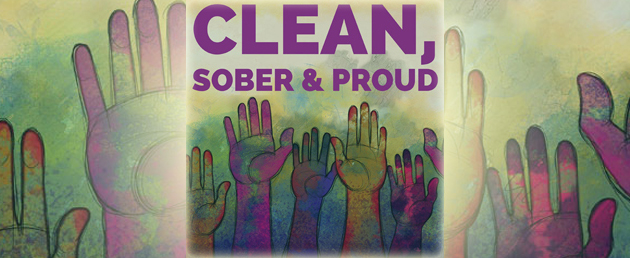Supported Sobriety for People with Concurring Developmental Disorders

Thousands of individuals with problem drinking and drug misuse do not recover due to the lack of specialized programs that meet their needs. Dungarvin Connecticut’s Supported Sobriety addresses addiction recovery for those with concurring developmental disorders: Substance Use Disorder, Mental Health Disorders, and Developmental Disabilities, including Autism Spectrum Disorder, or other learning disabilities. Individuals with Substance Use Disorder may not have been properly diagnosed. These include learning disabilities from damage to the parts of their brains that control attention, concentration, memory, perception, impulse control, and judgment, that occurred from falls, violence, or motor vehicle accidents while under the influence or drug seeking. This under-identified but increasingly studied population has intensive, long-term support needs.
Following the actions included in Supported Sobriety’s S.O.B.E.R., many individuals have achieved sobriety, attend 12-step meetings, are employed or seeking employment, and participate in recreation and faith-based activities.
S.O.B.E.R. is a mnemonic device to assist providers recall and implement the steps to Supported Sobriety.
Screen and assess for the presence of a learning disability.
Observe and identify the barriers to maintaining sobriety.
Build skills through the Five-Step, Twenty-four-Hour Plan, strategies, tools, and 12-step meetings.
Education with daily practice and participation.
Repetition to maintain and support sobriety.
Early Outcomes 2013-2017
- Twenty-one adult individuals have been admitted to the program since 2013; 19 males and 2 females. However, three left the program prior to engaging in it, against advice, leaving eighteen in total. The age range is from 27-61 years old, with the average age being 44. The participants’ ethnicity include 6 Caucasian, 6 African-American, 1 Caucasian/African-American, 3 Latino/a, 1 Latino/a/African-American, and 1 Native American/Caucasian. In addition to meeting the above criteria, 10 participants were also diagnosed as having antisocial personality disorder, anxiety disorder, attention deficit hyperactivity disorder, bipolar disorder NOS, depressive disorder NOS, schizoaffective disorder, and schizophrenia disorder, paranoid type. Due to the under-identified psychiatric diagnoses with this population, it is not clear if more of the participants may have some, all, or different co-occurring psychiatric disorders.
- Effectiveness of this clinical approach has been measured by ability to maintain sobriety, attendance at 12-step meetings, and relationships with those in the fellowship, employment, family re-engagement, and community integration as measured by community, faith-based, or recreational activities.
- Fourteen (78%) of the 18 individuals continue to express willingness to stay sober. Ten (56%) have maintained continuous sobriety since admission, while eight (44%) relapsed and four (22%) restarted their sobriety shortly thereafter.
- Four (22%) of the eight who relapsed, expressed lack of willingness to participate in the program after starting. Two were ultimately re-incarcerated due to probation violations, but were re-admitted upon completion of their sentences. One of those previously incarcerated selected to participate in the program is currently sober and engaging in positive recovery activities including AA meetings, job searching, and reengaging with friends and family. The other returned to the program after being released from jail, but declined to participate in the program after re-admission, and is currently homeless. The other 2 who declined to participate in the Supported Sobriety approach continue to receive support in the community, but have not been able to stay sober, participate in employment seeking activities, or engage with family or friends. Their future remains uncertain, although we continue to provide outreach in an effort to re-engage their willingness to try sober living.
- Twelve (67%) attend 12-step meetings regularly, and two (11%) have 12-step sponsors. Nine (50%) are employed, four (22%) are seeking employment, five (27%) are in employment skill-building training, and one (.05%) is living in skilled nursing facility. Eleven (61%) are reconnected with family and have made friends in the community through recreation and faith-based activities. For the remaining seven (39%) which includes some of those that relapsed, their families are not healthy recovery environments for them, or the individuals do not have identified family members.
The aim of the Supported Sobriety clinical approach is to provide informed and flexible interventions for providers to effectively support individuals in order to build essential coping skills to achieve and maintain stable sobriety. Without an existing comparable approach or program, it is difficult to analyze comparatively what the outcomes are with Supported Sobriety. The current outcomes for this approach seem promising. Of the eighteen individuals who had not otherwise been able to maintain sobriety on their own and were residing in prisons or institutions or were homeless, more than half (56%) achieved continuous sobriety, and less than half (44%) relapsed. Some of those were able to restart their programs to restore their focus on sobriety. 50% obtained employment, and only two were re-incarcerated for short periods during their program participation. Most (70%) are enjoying family relationships, and all are engaged in the community in positive ways.
To learn more about how you can incorporate Dungarvin Connecticut’s Supported Sobriety program using S.O.B.E.R. in your clinical approach, contact Hannah Jurewicz at hjurewicz@dungarvin.com or (860) 948-0699.

Add A Comment